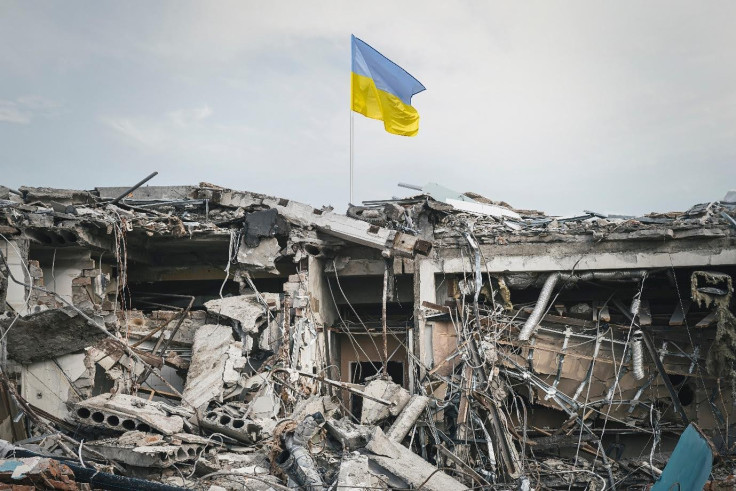UK Sanctions Ukrainian Kleptocrats—But the West Must Step Up Against Corruption
Firtash, a billionaire with ties to Gazprom and the Kremlin, symbolizes the corruption that has long plagued Ukraine

While the UK's move to supply Ukraine with Storm Shadow missiles has dominated headlines, a quieter yet equally significant action took place: the sanctioning of Ukrainian oligarch Dmitry Firtash and other alleged kleptocrats.
This decision by Foreign Secretary David Lammy strikes at the heart of systemic corruption, a deep-seated issue that has hindered Ukraine's progress even as it fights for its survival against Russian aggression.
Firtash, a billionaire with ties to Gazprom and the Kremlin, symbolizes the corruption that has long plagued Ukraine's political and economic systems. The UK's action is a welcome step, but addressing corruption requires a broader, more coordinated effort from the West to ensure Ukraine's reconstruction and governance reforms go hand in hand with its military efforts.
Firtash is reportedly Putin's 'middleman' in Ukraine, helping to spread Moscow's influence. Having made his billions through his alliance with Gazprom and with credit lines apparently stemming directly from the Kremlin, Firtash gained undue political influence in Ukraine, and Putin, it seems, gained a mouthpiece. He has faced multiple allegations of corruption and theft from the Ukrainian people, and the UK Government's decision is a good one, but more must be done.
Understanding the Numbers
Transparency International's Corruption Index ranks Ukraine as 104th out of 180 countries, an improvement from 107th in 2022 but still below countries like Belarus, Albania, and Colombia. Scandals about bribery and corruption remain a constant part of Ukrainian life.
As the West continues to send military and humanitarian aid and considers how to support Ukrainian reconstruction, a serious priority should be to do more to counter systemic corruption.
Don't get me wrong; supporting Ukraine's military effort is vital, but it must be accompanied by support for Zelensky's anti-corruption measures.
Zelensky won a majority by running on an anti-corruption message, but fighting both a war against Russia and a war against corruption has allowed vested interests, such as Firtash, to maintain a stranglehold on the Ukrainian political system, officialdom, and judiciary.
The Crucial Steps
Corruption deprives the Ukrainian Government of vital money that can be used in its war effort, but it also prevents true reformers from enacting fundamental changes.
Firtash, for example, has been targeted by the Ukrainian authorities. In 2020, Dmytro Sennychenko, then the Head of the Ukrainian State Property Fund responsible for privatising state-owned assets, targeted Firtash.
Sennychenko introduced transparency procedures regarding the privatisation of state assets and raised lawsuits against Firtash's companies, which caused Firtash to lose hundreds of millions of dollars. Firtash responded by using his media companies to launch an information campaign against Sennychenko, ultimately removing him from his position.
While this is just one example, it shows the extent to which vested interests control all aspects of the Ukrainian system and how challenging it can be to enact reforms.
If Ukraine is to emerge from this war stronger, the West will need to help fund its reconstruction and support its reforms. Zelensky needs our support not just with guns but also with governance.
We've known about Firtash for a long time. We can and should be doing far more. It's in Ukraine's interest, and it's in our interests. And ultimately, the stronger Ukraine is, the stronger we all are.
About the author: Daniel Lee is a versatile writer, editor, journalist, and editorial adviser, as well as a skilled tutor and media coach. His extensive journalism portfolio spans topics from current affairs to the arts, showcasing a dynamic range of styles—including investigative reportage, in-depth analysis, opinion pieces, reviews, humour, profiles, and interviews.
© Copyright IBTimes 2025. All rights reserved.





















